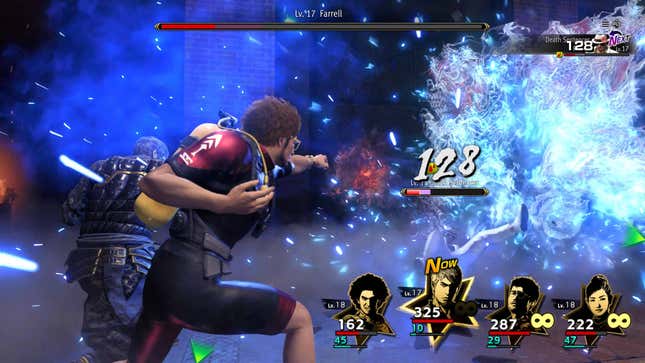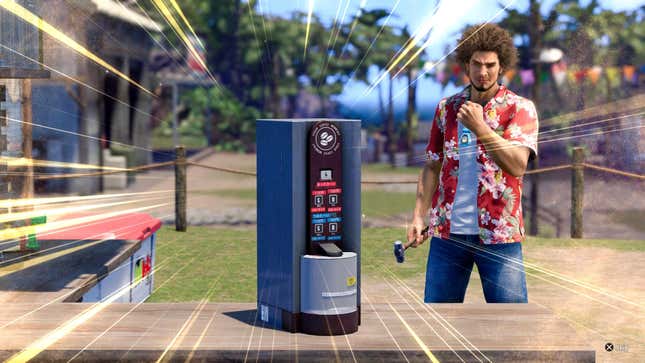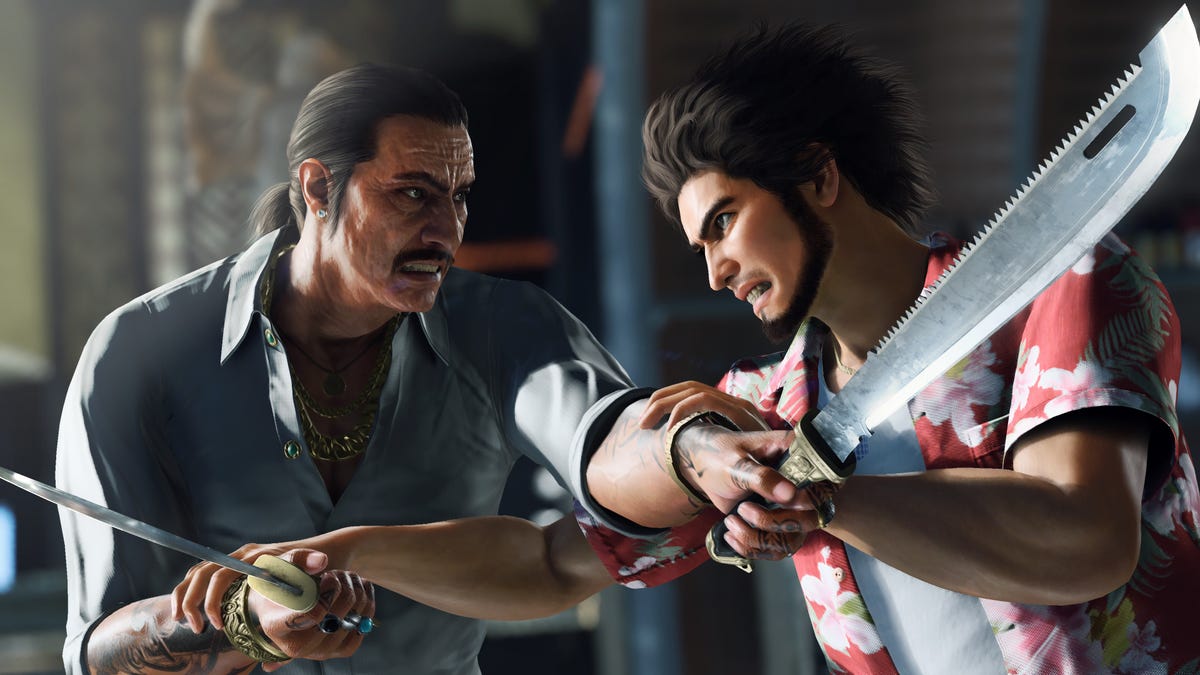The year has gotten off to a roaring start for fans of sprawling, intricate role-playing games. And one of our firm favorites is Like A Dragon: Infinite Wealth, the ninth mainline installment of Sega and Ryu Ga Gotoku Studios’ long-running series. In it, the sentient meme factory Kazuma Kiryu teams up with the relentlessly upbeat Ichiban Kasuga to unravel a globe-spanning conspiracy that unites a Hawaiian cult, Ichiban’s long-lost mother, a vindictive V-Tuber, and the fractured remnants of Japan’s criminal underworld.
Now that Infinite Wealth’s been out for a little while, Kotaku checked in with Chief Producer Hiroyuki Sakamoto to find out more about some initial concepts that didn’t make the final game, the process of building an in-depth sim within an RPG, and what’s next for the series as a whole.

Working class heroes
As was the case with 2020’s Yakuza: Like A Dragon, Infinite Wealth’s job system manages to be both hilarious and strategically rewarding. But even though Ichiban is a hardcore Dragon Quest fanboy, your party members don’t take on traditional fantasy archetypes. Instead of knights and mages, Infinite Wealth’s jobs are largely pulled from the real world—think surfer, chef, or dominatrix. But like Dragon Quest, these classes have unique strengths and weaknesses: pop idols dole out healing and buffs, while surfers wield their longboards for crowd control and water-elemental damage. Swapping jobs can completely alter a character’s combat style, and each has unique animations and movesets. Each one of the 27 (!!!) unique job types ooze personality at every moment, and it’s abundantly clear that a whole lot of work went into creating every single one of them. Believe it or not, there were plans for several more jobs that didn’t make the final cut.
“I have to say, there are many! Basketball players, couriers, and pest exterminators were in the initial concept, but we have omitted them in light of the variety in this work,” Sakamoto tells Kotaku. “The enemies are also quite unique characters with many details and unique concepts, which was a big challenge.”
With three intricate urban environments to explore (Honolulu, Yokohama, and Kamurocho), you’ll never be short of options for things to do in Infinite Wealth. But one of the most compelling activities in the game is actually getting away from it all. It wouldn’t be a Like A Dragon game without a big, marquee minigame that you can dump a dozen hours into, like managing a cabaret club or becoming a real-estate tycoon. Infinite Wealth’s answer to that is the Animal Crossing-inspired resort builder, Dondoko Island (dondoko means “rock bottom” in Japanese). But instead of cutesy-poo dollhouses straight out of Sylvanian Families or Sanrio, you’re building karaoke bars, noodle shops, and soaplands.
For Sakamoto and the rest of the RGG team, there was no room for half-measures or a dumbed-down experience. The result is a grippy-yet-chill resort management sim that lets you transform a dump into a dream destination, and its alluring siren song will call to you even after you’ve rolled credits on the main story.
“We decided to go all out with Dondoko Island without making any reductions to the concept of resort island builder and simulator. We actually spent a lot of time tuning it during its creation such as adding and subtracting elements, adjusting the balance, and so on,” says Sakamoto. “In terms of the amount of work that went into it, I personally think it is the best of the side games in the entire series.”

Older and wiser
Once you’re ready to leave Dondoko and head back to civilization, you’ll find a story with more twists than a bucket of curly fries and plenty of poignant moments. At the center of it all is Kiryu, the stoic protagonist of Yakuza 0-6, who finds himself at a major crossroads. Not only is he fighting cancer, but all his loved ones think he’s dead, thanks to a Faustian bargain he made with a shadowy organization known as the Daidoji Faction at the end of Yakuza 6. Years later, he’s discovering he needs his friends and family just as much as they needed him. Much of Infinite Wealth shows Kiryu learning to accept help—and eventually, asking for it.
“In Yakuza 6, Kiryu made the momentous decision to disappear from the public eye as an agent. Up until now, Kiryu had chosen a way of life in which he was willing to sacrifice himself for the sake of his family and friends. However, he keenly realized that even though he had chosen such a way of life, his family and friends had always been his emotional support,” Sakamoto elaborates. “Being sick during Yakuza: Like a Dragon caused Kiryu to re-examine his life without putting others before him for the very first time, which in turn caused him to change his attitude to truly face his family and friends in a different way.”
Toward the end of Infinite Wealth, Kiryu says to one of his old adversaries, “Even if I’m not as strong as I once was, I’m still me. And I’m starting to think that’s not so bad.” It’s a turning point for the character and the series as a whole—he’s embracing a different kind of future, rather than running from it. But at the same time, he’s also passing the torch to Ichiban. So what does that mean for the inevitable next installment of Like A Dragon? Sakamoto’s keeping that information close to the chest for now, but it does seem certain that Ichiban will continue to be the happy warrior, no matter what comes his way.
“I believe that Ichiban has taken the lessons he learned from his latest quest and continues to help people he meets in the ways that he can,” says Sakamoto. “As for the Like a Dragon series, we hope to continue to surprise and entertain you, so please stay tuned for what’s in store!”
Like A Dragon: Infinite Wealth is out now on PlayStation, Xbox, and PC.

